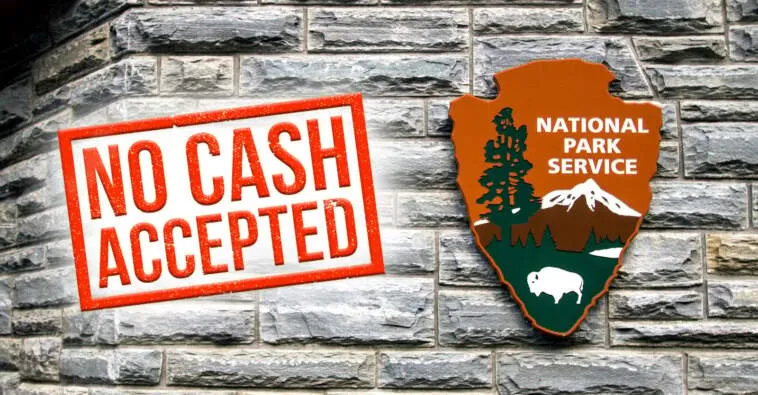(The Defender) When Elizabeth Dasburg tried to use cash to pay the entry fee to the Fort Pulaski National Monument in Georgia, she was told that the site, part of the U.S. National Park Service, could accept cards only, no cash.
An employee suggested she go to the local grocery store or “big chains like Walmart” to purchase a gift card. “Since those are cards, we can accept them in leu [sic] of cash,” the site employee wrote.
Dasburg and two others who also were denied entrance to a national park unless they used a card to pay the entrance fee on Wednesday sued the National Park Service, challenging its cashless fee collection policy.
In a complaint filed in the U.S. District Court for the District of Columbia, the plaintiffs allege the federal agency is violating U.S. law by refusing to accept U.S. currency as entry payment.
Children’s Health Defense (CHD) is financially supporting the lawsuit.
“CHD is excited to support attorney Ray Flores and the plaintiffs in this case to push back against the move toward a cashless society and central bank digital currency,” said Kim Mack Rosenberg, CHD general counsel.
“By forcing people to use credit cards or digital wallets, under the guise of convenience, the National Park Service becomes a player in the surveillance state, undermining park visitors’ privacy right,” Rosenberg said.
Flores told The Defender he found it “appalling” that “these pristine lands are the nation’s testing ground” for a cashless society.
The National Park Service has been implementing and expanding a cashless entry payment system over the past few years, Flores said.
Now, nearly 30 national parks, historic sites and monuments deny entrance to those who try to pay with cash, the complaint said. They accept only credit, debit and other electronic forms of payment, such as ApplePay.
The plaintiffs are asking the court to declare this practice unlawful, which would mean the National Park Service would be forced to let visitors pay with cash. They also seek relief for the cost of the suit, including attorney fees.
Defendants in the case are the National Park Service, the U.S. Department of the Interior — which oversees the National Park Service — and Charles F. Sams III in his official capacity as National Park Service director.
Denying cash violates federal law
According to the complaint, federal statute (U.S. Code Title 31, Section 5103) makes it clear that “United States coins and currency … are legal tender for all debts, public charges, taxes, and dues.”
U.S. currency is essentially “demonetized” when the National Park Service “erodes the dollar’s status as U.S. legal tender,” Flores said.
Catherine Austin Fitts — former federal housing commissioner at the U.S. Department of Health and Human Services and publisher of the “Solari Report” — told The Defender, “This lawsuit goes at the very heart of the war to preserve cash, and with it, our human and health freedoms.”
“Removing cash from circulation,” she said, “is an essential step to implementing a complete surveillance state that can shut off our money at will — as we saw happen to the Canadian Truckers — or take our assets and grab our land.”
Flores agreed. “Cashless is a key component — if not the lynchpin — of the surveillance state.”
Austin Fitts encouraged people to support the lawsuit “with your prayers and by using cash and supporting the businesses and organizations that continue to accept and promote cash.”
Cashless policy disadvantages low-income, minority families
Meanwhile, critics of the cashless policy — including CHD President Laura Bono — said refusing to let visitors pay with cash may disproportionately impact lower-income families and people of color.
Only half of low-income households have access to a credit card, according to a March 2022 Federal Reserve Bank of New York report, Bono wrote in a letter to National Park Service Director Charles F. Sams III.
The Government Accountability Office in April 2022 reported that Black and Hispanic households were about 60% less likely than white households to have a bank account. “This should trouble you as greatly as it does me,” Bono wrote.
Flores agreed. “Comforting platitudes of inclusivity, stewardship and welcome are exposed as a fraud when the National Park Service tells the poor and others with hard-earned cash-in-hand to stay out.”






